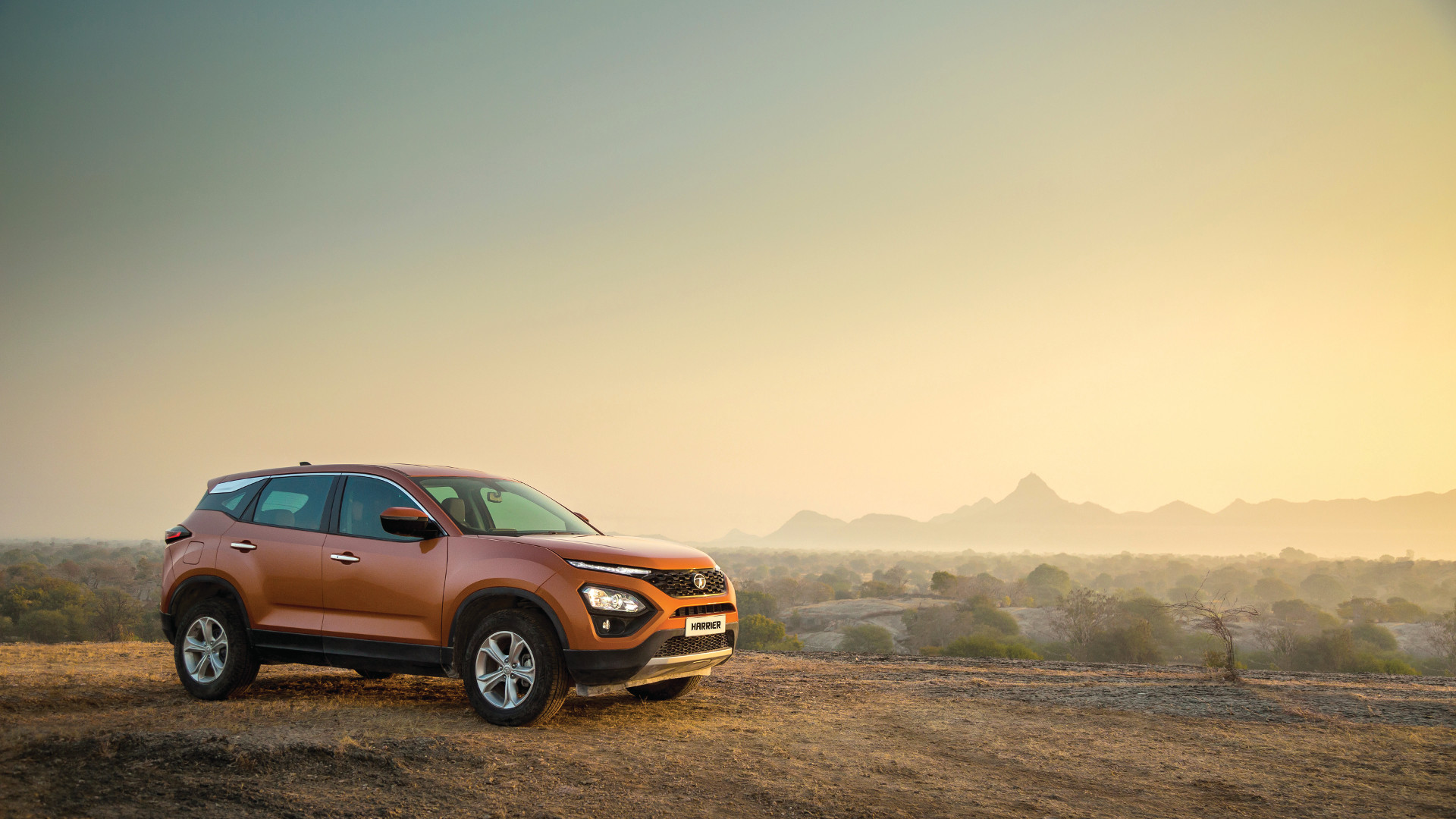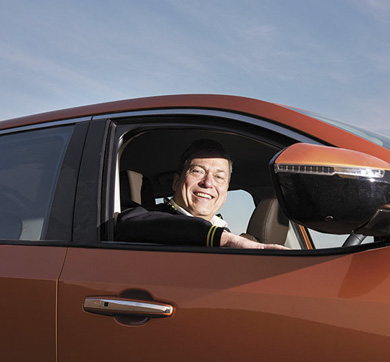March 2019 | 1446 words | 6-minute read
The new Tata Harrier is intent on fixing a premium glint on brand Tata Motors. Armed with Land Rover’s D8 monocoque platform from the Discovery Sport, a KRYOTEC 2.0 diesel engine and Impact 2.0 design language that it wears with confidence, the Harrier will make this interesting.
Face It
In bright copper, with the slim LED DRLs (daytime running lights) cum turn indicators slicing in right under the bonnet, the Harrier draws its connection to the Tata H5X concept with ease. But the few tweaks to the design has caused a chunk of the fandom to switch sides, or at least take to the fence. The quirky geometric design of the headlamp housing and the slightly heavier chin will have to shoulder that responsibility. While the design is sharp and edgy, the wide band of black cladding and the contrasting silver faux skid plate remind you that the Harrier is rugged.
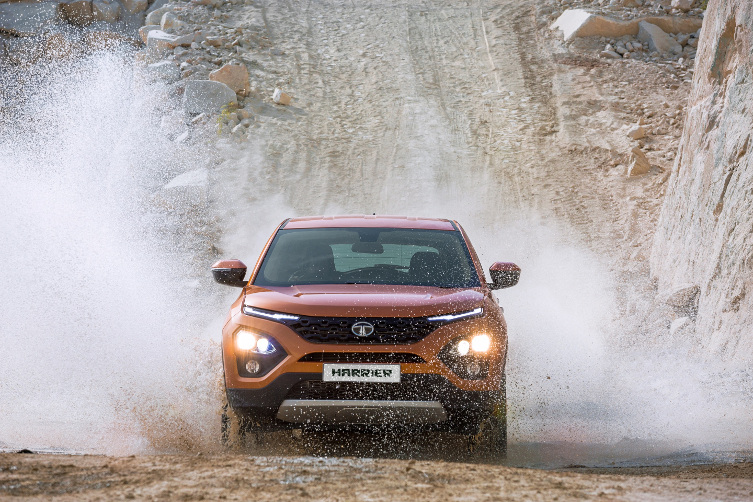
.
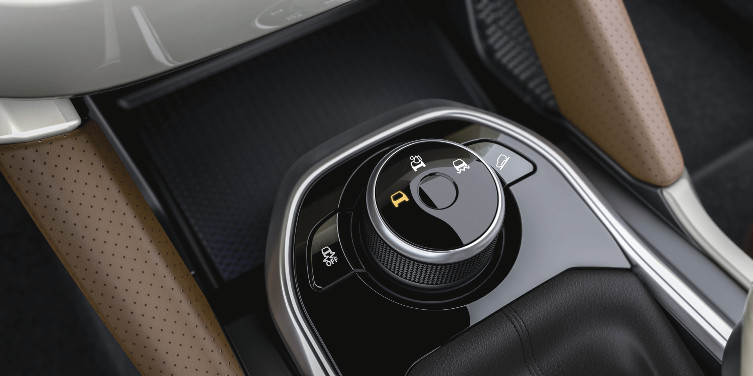
The strength of the Harrier is also in its stance. Its 2,741mm footprint dwarfs bigger and more expensive SUVs. It is a size larger than its immediate rivals and more expensive ones too. And even when standing next to ladder-on-frame SUVs, the Harrier won’t look timid. However, instead of 17-inch rims, Tata Motors could easily offer the 18-inch variant to strengthen the stance further without compromising ride quality or durability.
Tata Motor’s Harrier also takes on a sportier stance than its rivals and its platform donor, the Discovery Sport. The rising window line and the sloping roofline squish the glass area a bit and give it a sportier look.
Edginess mixed with sophistication makes a comeback when you look at the rear. What got our attention right away was the flush-fitting design of the rear bumper. The funky quotient is upped by the connected tail lamps that can be best described as a two-headed spear. Smooth LED elements in the sharply creased lamps add to the sense of premiumness. Although a bit quirky at first, the centre-aligned ‘Harrier’ badging on the tailgate grows on you.
Stepping In, And Up
It’s a credit to Tata Motors’ design team that they have created a look that doesn’t feel derived or contrived. Clean and classy describes it best. The chrome trims, ornamental wood panels and soft-touch finish for the dashboard makes it look and feel premium. I absolutely loved the door handles that actually felt cold to the touch — or hot, giving the sensation of quality metal.
Settle in and you’ll find that space isn’t in short supply. There’s ample headroom and the wide cabin makes it feel even airier. But compared with the Discovery Sport, the Harrier makes you feel like you are sitting in a sportier “in-the-car” position rather than “on-top-of-it” SUV feel. However, there are a few ergonomic issues for the driver like the raked A-pillar and large ORVMs (outside rear-view mirrors) that create a blind spot and require some care while navigating roundabouts or intersections.
Kneeroom and headroom are plentiful for backseat passengers. The seats are supportive and shaped to ensure that even the middle passenger is comfortable. There are aircon vents mounted on the B-pillar and the nifty trays to stow your mobile phone in the doors are very handy. We only wish the seat back would recline.
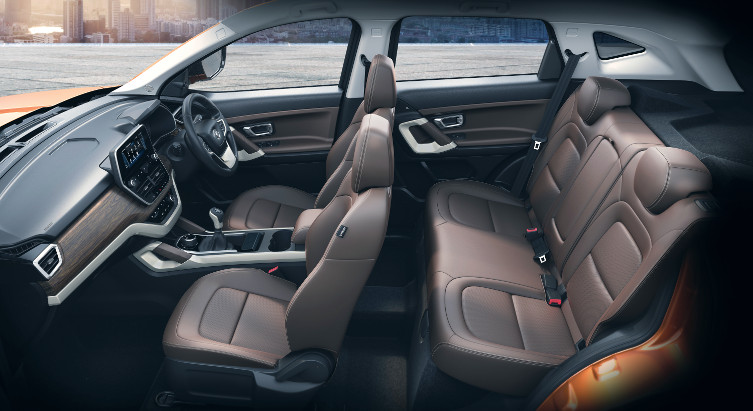
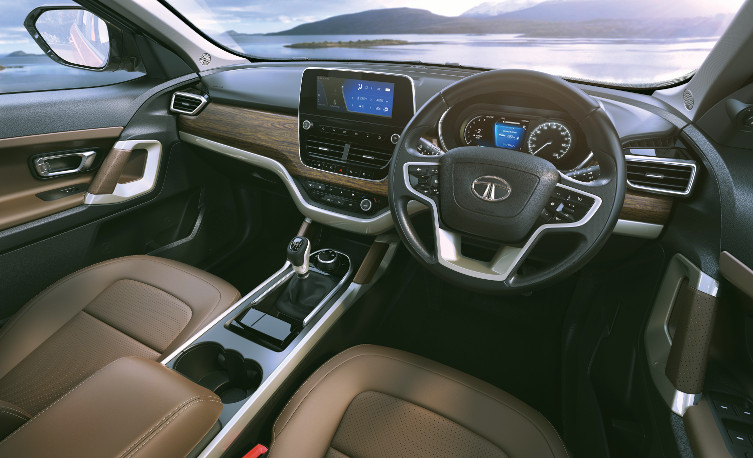
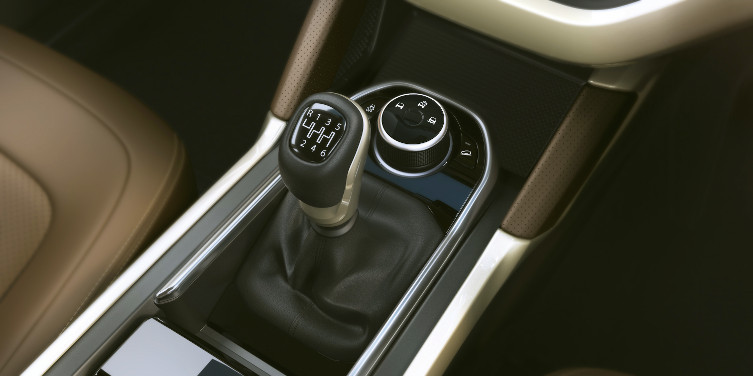
Goodies!
Let’s get what isn’t on offer out of the way first. Sunroof. Ventilated seats. Ambient lighting. We are sure there’s an XZ+ variant not too far in the future.
But even now, the Harrier is well equipped. It has the fully automatic climate control system of the Discovery Sport. The logo projection units are a luxury car connection. The headlamps get HID (high-intensity discharge lamps) projectors for the low beam while the high beam is a halogen unit. The fog lamps also offer cornering functionality in the top-spec XZ variant. There are rain-sensing wipers and automatic headlamps too. It is worth noting that the driver gets cruise control and an eight-way manually adjustable seat as well.
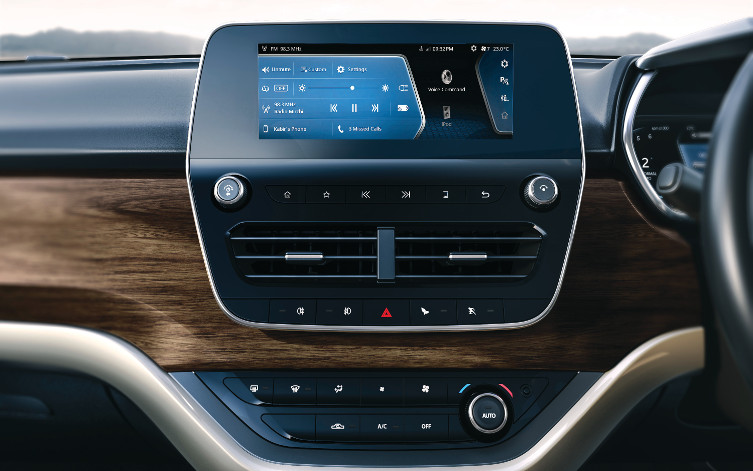
For the infotainment system, there is an 8.8-inch touchscreen laid out horizontally. The screen is great to use and doesn’t intrude into your view. It comes equipped with Android Auto while Apple CarPlay will be available in the near future. It shares information such as navigation instructions or music with the driver’s seven-inch colour TFT display (flat-panel display screen). This display also shows you real-time power and torque readouts aside from other trip and fuel consumption details.
One of the highlights of the top-end XZ variant has to be the JBL audio setup. Using four tweeters, four speakers, one subwoofer and an external amp, it creates a front-row live performance experience. The sound staging is plain mesmerising. I felt like Freddie Mercury was yodelling on the other side of the recording studio window. Epic. But there are some functional misses — the reversing camera quality could have been better, and there is no auto-dimming IRVM (inside rear-view mirror).
While the lower three variants get just dual airbags and ABS (antilock braking system), the top-end XZ variant gets six airbags, ESP (electronic stability programme), hill hold assist, hill descent control, rollover mitigation, corner stability control, brake disc wiping, traction control and ISOFIX anchor points for child safety.
Aside from this, the Harrier also gets three drive modes — City, Sport and Eco — and three Terrain Response modes — Normal, Wet and Rough.
On The Road
Get going and the 2.0-litre diesel engine proves to be a clear highlight. Being down on power to 140PS compared with the Jeep Compass’ 173PS hasn’t hurt the Harrier one bit. This retune has given the Harrier amazing drivability, so you can cruise around city streets in third gear without having to reach for the gear lever again and again. While the clutch is light, the gearshifts could have been smoother. Yes, there is something missing though — an automatic transmission. But it is under development and will be added to the line-up in the future.
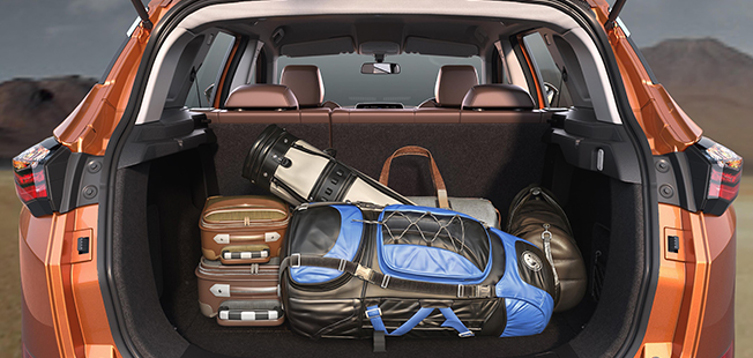
Be it the long haul or running around the city, the Harrier has the mettle to deliver. The City drive mode makes things more enjoyable at slow speeds as it softens the torque from the engine and the throttle response to make the going calm and smooth. The Sport mode adds a spring to the step, which is perfect for highway stints. Irrespective of which mode you use, the Harrier can cruise at 100kmph in 6th gear at just 1800rpm. Eco mode dulls the responsiveness significantly but should pay dividends in terms of fuel efficiency. Tata Motors claims a reasonable 16.79kpl fuel efficiency.
The only real complaint we have isn’t actually directed at the engine but the sound insulation. Tyre noise, road noise and the engine drone should have been better damped. At the launch Tata Motors claimed that this has been fixed, and we can’t wait to test out what should be a tireless Harrier.
Crossed Over
The modern-day SUV promise has been delivered by the Harrier. First, its Land Rover genes ensure that it relishes in taking the sting out of the meanest of road surfaces. Dish out some smooth highways and the Harrier will head well north of the 100kmph mark and not get floaty or unruly. However, occupants in the rear might feel a bit of bounciness.
Second, it is fun to drive. The hydraulic steering, although a touch heavy at low speeds, is quick to get this 1675kg brute to change directions with surprising eagerness. As it switches lanes, the body roll is well contained and doesn’t force you to back off.
Although the brakes are adequate, a bit more bite and feel would have been welcome when stopping from high speeds.
Keep in mind there is no all-wheel drive on offer on the Harrier and neither is it likely to come anytime soon. While this might disappoint some buyers, Tata Motors is offering an ESP-based Terrain Response system that alters throttle and engine responsiveness and ESP intervention to help the Harrier claw further on the path less taken than you would have expected.
Verdict
The Harrier has some rough edges, but these are shortcomings that you could learn to overlook or find a workaround for. There are enough reasons to spur you on to do so. This rugged SUV will be easy to use even in the city, will beg you to drive longer and further on the highway and will make you feel cocooned and well cared for through it all.
With prices starting at 12.69 lakh, the Tata Harrier will be all the more accessible and desirable.
—Author Kartikeya Singhee is the group editorial head of Girnar Soft and responsible for all editorial content on its automotive portals like CarDekho, Gaadi and ZigWheels.

